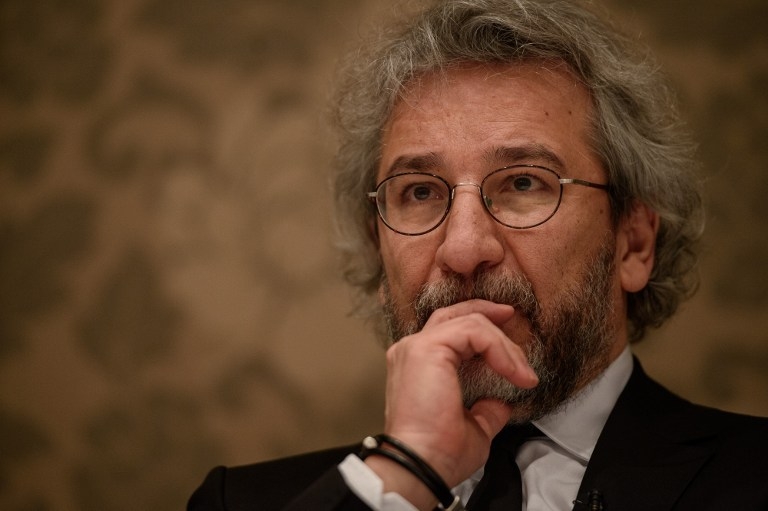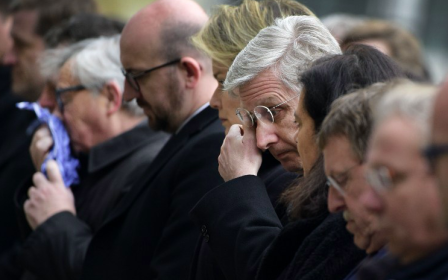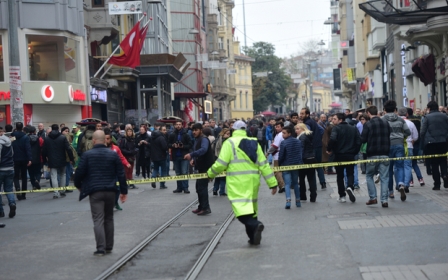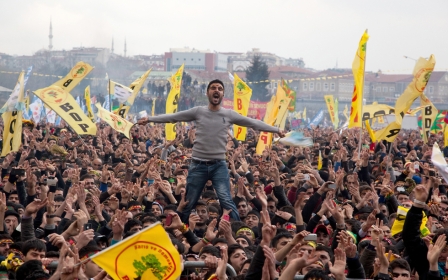Turkey bans media from landmark press freedom case

Two Turkish journalists went on trial in Istanbul on Friday facing possible life terms on espionage charges, with the court immediately banning the public from a case seen as a test of press freedom under President Recep Tayyip Erdogan.
Can Dundar, the editor-in-chief of leading opposition newspaper Cumhuriyet, and Erdem Gul, his Ankara bureau chief, are charged with espionage and revealing state secrets over a story accusing the government of seeking to illicitly deliver arms to rebels in Syria.
The judge on Friday ordered the trial to be held behind closed doors, granting a request by the prosecution which cited security concerns.
About 200 supporters chanting "You will not silence press freedom" applauded the journalists as they arrived at court.
"We are here to defend journalism," Dundar, 54, said. "We will defend journalism and the right of the public to be told the truth."
Cumhuriyet's report sparked a furore when it was published in May, fuelling speculation about Turkey's role in the Syrian conflict and its alleged ties to Islamist groups in the country.
Erdogan warned Dundar he would "pay a heavy price" for the report.
Dundar and Gul were arrested in November and held in custody for three months before being released in February on the orders of the Constitutional Court, which ruled their right to free speech had been violated.
The court is one of the last Turkish institutions not under the full control of Erdogan who can call on the support of the army, government and parliament.
'Journalism is not a crime'
Dundar said he and Gul had found themselves "caught between two palaces: the palace of justice and the palace of illegality," referring to the lavish, 1,150-room presidential complex in Ankara which Erdogan had built at a cost of $615 million.
"The palace of justice, in following the decision of the Constitutional Court, released us, but the palace of illegality has done everything in its power to put us back in prison," Dundar said before going into court.
"We will see which of the two... emerges victorious."
Gul said he had come to show that journalism "is not a crime".
"The Constitutional Court has recognised that what we did came under the practice of journalism," he said.
The prosecution has sparked outrage among opposition and rights groups in Turkey.
Prosecutors have asked that Dundar and Gul be given two life terms and 30 additional years.
In a sign of the sensitivity of the case, several EU consuls to Istanbul attended Friday's proceedings.
Dundar has said he will use the case to put the state's foreign policy, including its role in Syria, in the dock.
Erdogan's critics accuse him of having at best ignored, at worst abetted the rise of the Islamic State group across the border until last summer when Turkey finally stepped up operations against the militants.
Since then IS has been accused of four suicide bombings on Turkish soil that have killed scores of people, including an attack last weekend in Istanbul that left four foreigners dead. Kurdish rebels have claimed two other recent suicide attacks.
"The trial of Dundar and Gul is a test for the rule of law in Turkey," said Christophe Deloire, secretary general of press freedom group Reporters Without Borders. "These are two journalists, not dangerous terrorists."
Almost 2,000 people have been prosecuted for "insulting" Erdogan since the former premier became president in August 2014, Turkey's justice minister said earlier this month.
The opposition Zaman newspaper, which is allied to Erdogan's arch-enemy, exiled preacher Fethullah Gulen, was forcibly placed under state supervision earlier this month.
Turkish authorities have also gone on the offensive against critics of the state's bloody war with militants from the outlawed PKK, or Kurdistan Workers' Party, in the mainly Kurdish towns of the southeast, accusing them of "terrorist propaganda".
New MEE newsletter: Jerusalem Dispatch
Sign up to get the latest insights and analysis on Israel-Palestine, alongside Turkey Unpacked and other MEE newsletters
Middle East Eye delivers independent and unrivalled coverage and analysis of the Middle East, North Africa and beyond. To learn more about republishing this content and the associated fees, please fill out this form. More about MEE can be found here.




